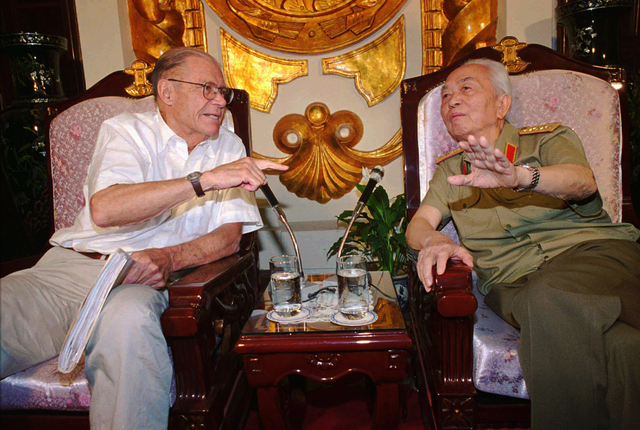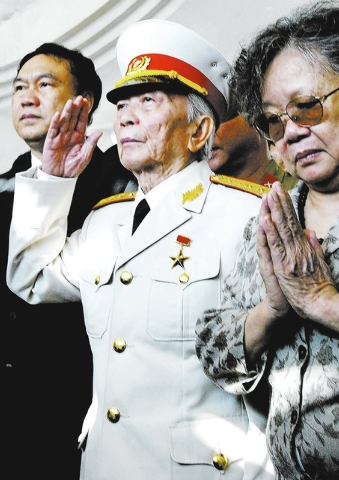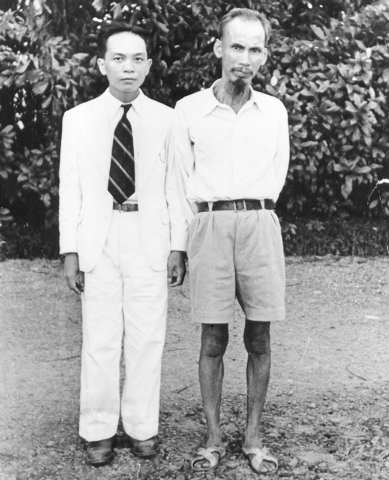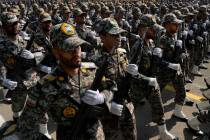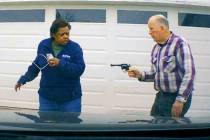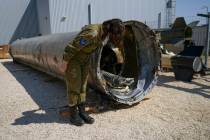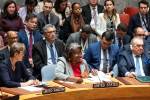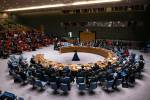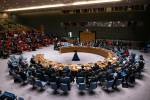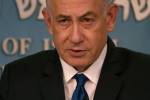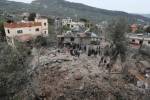General who led Vietnamese to victory over France, U.S. dies
HANOI, Vietnam — Gen. Vo Nguyen Giap, who led guerrillas to victory in Vietnam over the French and then the Americans, died Friday. The last of the country’s old-guard revolutionaries was 102.
Giap, who enjoyed a legacy second only to that of independence leader Ho Chi Minh, died in a Hanoi hospital.
Known as the “Red Napoleon,” Giap commanded guerrillas who wore sandals made of car tires and lugged artillery over mountains to encircle and crush the French army at Dien Bien Phu in 1954. The victory led to Vietnam’s independence and hastened the collapse of colonialism across Indochina and elsewhere.
Giap then defeated the U.S.-backed South Vietnam government in April 1975, reuniting a country that had been split into communist and noncommunist states. He regularly accepted heavy combat losses to achieve his goals.
“No other wars for national liberation were as fierce or caused as many losses as this war. But we still fought because, for Vietnam, nothing is more precious than independence and freedom,” Giap said in 2005, repeating a famous quote by Ho Chi Minh.
Giap was the nemesis of millions of South Vietnamese who fought alongside U.S. troops and fled after the war, including the many anti-communist refugees who settled in the United States.
Giap became active in politics in the 1920s and was a journalist before joining the Indochinese Communist Party. He was jailed briefly in 1930 for leading anti-French protests and later earned a law degree from Hanoi University.
He fled French police in 1940 and met Ho Chi Minh in southwestern China before returning to Vietnam to recruit guerrillas for the Viet Minh, forerunner to the southern insurgency later known as the Viet Cong.
In 1944, Ho Chi Minh called on Giap to organize guerrillas against Japanese invaders in World War II. After Japan’s surrender the next year, the Viet Minh continued their fight for independence from France.
Giap never received any formal military training. But at Dien Bien Phu, his Viet Minh army surprised French forces by surrounding them. Digging miles of trenches, the Vietnamese dragged artillery over mountains and slowly closed in during the 56-day battle that ended with French surrender on May 7, 1954.
That led to French withdrawal and Geneva Accords that partitioned Vietnam into north and south in 1956. It paved the way for war against South Vietnam’s U.S. sponsors a decade later.
Giap drew on his Dien Bien Phu experience to create the Ho Chi Minh Trail, which snaked through ostensibly neutral Laos and Cambodia to supply his troops on southern battlefields.
On April 30, 1975, communist forces marched through Saigon, ending what is known in Vietnam as the “American War.” Victory came at a price: the deaths of as many as 3 million communists and civilians, including 1 million of Giap’s guerrillas and an estimated 250,000 South Vietnamese personnel and 58,000 Americans.



